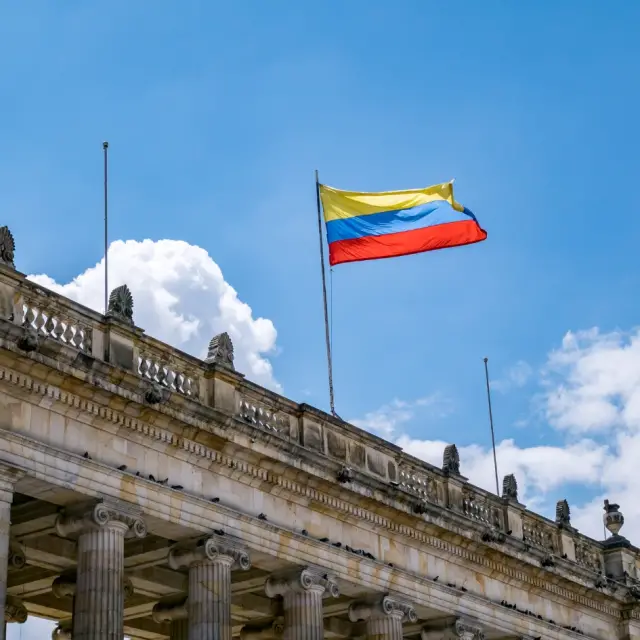Gustavo Petro assumed the presidency of Colombia on August 7, 2022, marking a historic milestone by becoming the first leftist president in the country. His government has been characterized by an ambitious agenda of reforms in key areas such as health, education, pensions, and social justice. As he approaches the halfway point of his term, it is pertinent to analyze the advances, challenges, and controversies that have defined his administration.
Structural reforms: progress and obstacles.
Since the beginning of his administration, Petro has promoted a series of structural reforms with the aim of profoundly transforming Colombian society. However, the implementation of these reforms has faced multiple challenges in Congress. For example, the reform of health and education were rejected, while the pension reform and the decentralization of the General Participation System (SGP) were only approved with modifications that did not fully meet the government's expectations ( El País ).
The relationship between the executive and legislative branches has been strained by these disagreements, leading to a fragmentation of the support coalition in Congress and reducing the government's legislative effectiveness. In addition, corruption scandals and a decline in Petro's popularity have further complicated the passage of his proposals.
Social policies and fight against corruption.
In the social sphere, the Petro government has made significant progress in land formalization. In its first year, 25,802 hectares of fertile land were purchased, surpassing the 17,248 hectares acquired during the previous four-year period. In addition, 33,016 peasant families, black and indigenous communities received land formalization titles, which represents a notable advance compared to previous administrations ( CELAG ).
Regarding the fight against corruption, the National Development Plan has incorporated measures to strengthen transparency and accountability. However, public perception of the effectiveness of these measures has been mixed, especially in the context of recent scandals that have affected the government ( Transparency for Colombia ).
Economic and political challenges.
The Petro government has faced significant economic challenges, including a restrictive monetary policy, high financing costs, and low levels of investment. These factors have raised concerns about the country's economic performance and the government's ability to implement its social and economic policies ( Grupo Proindustria ).
Politically, the administration has had to navigate a complex environment, with tense relations with Congress and divided public opinion. According to recent polls, about a third of the population approves of Petro’s management, while 62% disapprove ( El País ). This polarization has made it difficult to build the consensus needed to advance his reform agenda.
International relations and cultural heritage.
At the international level, the Petro government has stepped up its efforts to repatriate pieces of archaeological and cultural heritage. Since the beginning of his term, more than 850 artifacts have been recovered, in collaboration with other governments and international organizations. These actions reflect a commitment to the protection and promotion of Colombian cultural heritage ( El País ).
Colombia has also taken a more active role in international forums, advocating for climate justice and energy transition policies. Petro has highlighted the importance of reducing the country's dependence on fossil fuels and moving towards a more sustainable economic model.
Key points in Petro's management.
Agrarian reform: Despite progress in land formalization, effective redistribution remains a challenge due to resistance from traditional sectors.
Health and education: The promise of ensuring universal access to these services has been hampered by a lack of political consensus and sufficient resources.
Total peace: Petro has continued negotiations with illegal armed groups, but the implementation of the peace accords faces difficulties in regions affected by violence and drug trafficking.
Energy transition: Although it has promoted policies to move towards clean energy, the country faces significant challenges in infrastructure and financing.
Criticism and controversy.
Petro's administration has not been free of controversy. Corruption scandals and clashes with business and political leaders have eroded confidence in his government. In addition, some sectors have questioned his ability to execute such an ambitious agenda in a context of budgetary restrictions and political opposition.
On the other hand, his leadership style has been criticized by some analysts, who consider that he sometimes acts in an improvised or polarizing manner. These aspects have made it difficult to consolidate strategic alliances necessary to promote his reforms.
Future prospects.
As Gustavo Petro's government moves into the second half of its term, it faces the task of consolidating the progress made and overcoming the obstacles that have limited the implementation of its agenda. The ability to build political consensus, restore public trust, and effectively manage the economy will be determining factors in the success of his administration.
The Petro government still has time to implement significant changes, but it will be crucial to adopt a more inclusive and pragmatic strategy. Strengthening institutions, improving communication with citizens and prioritizing the most viable reforms could make a difference in the coming years.
Gustavo Petro's government has undertaken ambitious initiatives in pursuit of profound transformations in Colombia. However, political resistance, economic challenges and internal controversies have complicated the materialization of his objectives. The future of his administration will depend on his ability to adapt to these realities and forge alliances that will allow him to advance his vision for the country.
For more information and analysis on Petro's government, you can consult the following resource:
Sources consulted:
